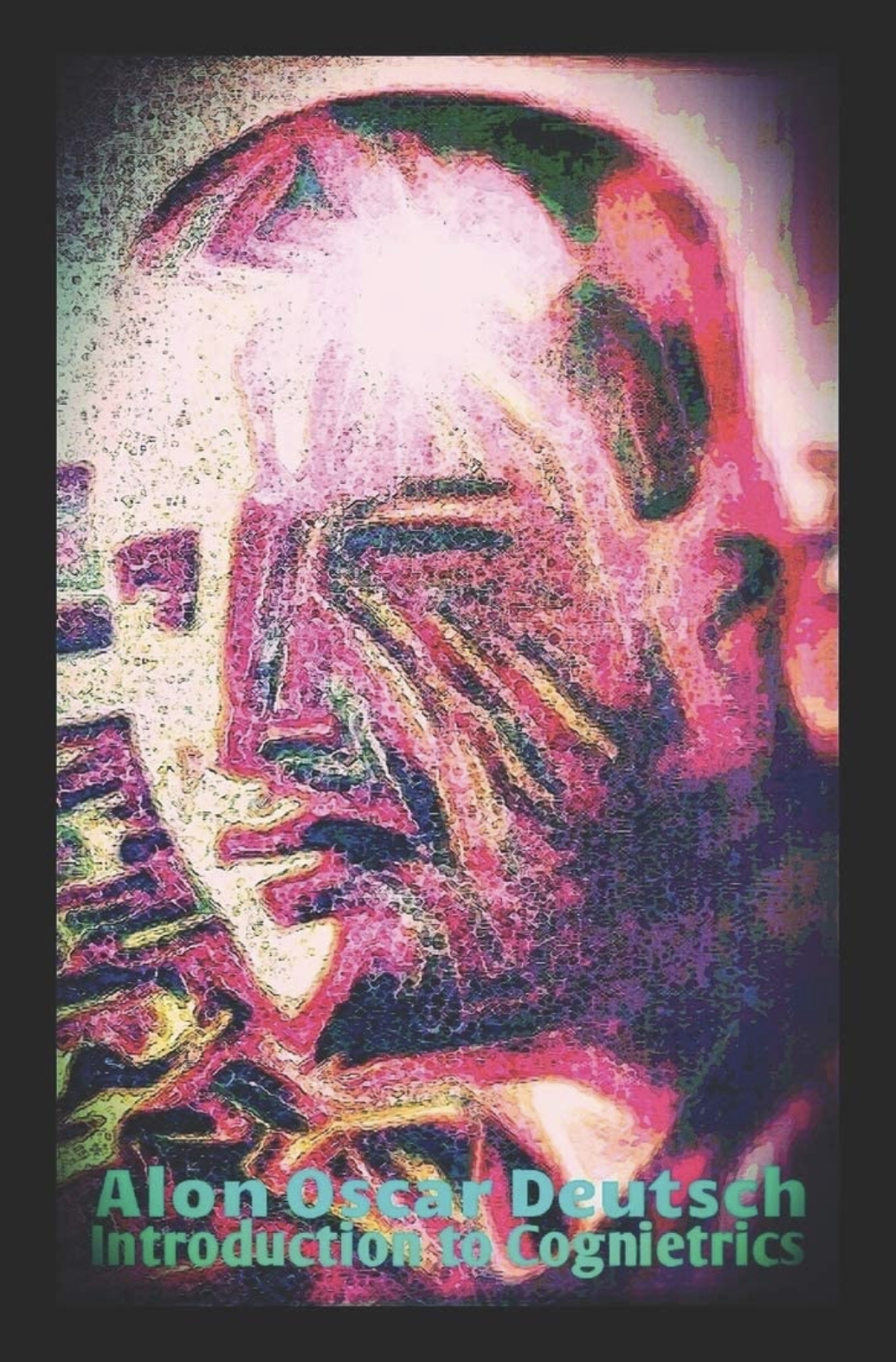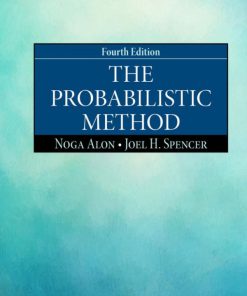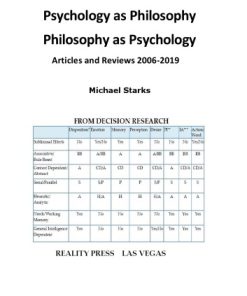On the Psychology of Philosophy 2nd Edition by Alon Oscar Deutsch 1539927652 9781539927655
$50.00 Original price was: $50.00.$25.00Current price is: $25.00.
On the Psychology of Philosophy 2nd Edition by Alon Oscar Deutsch – Ebook PDF Instant Download/DeliveryISBN: 1539927652, 9781539927655
Full download On the Psychology of Philosophy 2nd Edition after payment.

Product details:
ISBN-10 : 1539927652
ISBN-13 : 9781539927655
Author: Alon Oscar Deutsch
People have asked about the subject of my book, and how it is possible to calculate the definition of philosophical concepts such as knowledge and deduction from combinations of psychological aptitudes using abstract algebra. For this reason I would like to share with you one of the results calculated in my book. Myers-Briggs types are classified as: Introverted or Extraverted, iNtuitive (imaginative) or Sensing (realistic), Thinking (logical) or Feeling (emotional), and Judging (planning) or Perceiving (accommodating). Among the Myers-Briggs types, it is commonly accepted that J types extravert the judging function and P types extravert the perceiving function. This causes problems for introverts: an IP type therefore also has his perceiving function after his introverted judging function. However, I believe that this interpretation is correct because small children are very dependent on others and so are quite extraverted. If they become introverted it is to spend extra time supporting the established extraverted function by preparing with the introverted function. Perceiving functions can be sensing or intuiting, and judging functions can be thinking or feeling. AD: So IP and EJ types have a judging function followed by a perceiving function, and IJ and EP types have a perceiving function followed by a judging function. IP and EJ types, because they perceive with respect to a priori judgments, must then Discover; IJ and EP types, because they judge with respect to a posteriori perceptions, must then Invent. BC: Classicists are NT, scrutinizing the imagination, or SF, attached to reality. Progressives are NF, attached to the imagination, or ST, scrutinizing reality. AD * BC = ABCD: Like Reinin’s interpretation of Socionics, in my theory, Cognietrics, any two traits imply a third. Therefore Patterns use unconventional (Progressive) insights (Discoverer) for conventional (Classicist) purposes (Inventor), whereas Concepts use conventional (Classicist) insights (Discoverer) for unconventional (Progressive) purposes (Inventor). ABD: Types who intuit first, INJ or ENP, or sense second, ISP or ESJ, are Deductive, because they are processing abstract arguments to determine a result that must exist in reality. Types who sense first, ISJ or ESP, or intuit second, INP or ENJ, are Inductive, because they are hoping to reach an abstract conclusion about concrete categories. C: Logic represents the mind dealing with things that are Changing, whereas emotion with things that are Unchanging. For this reason when you like someone you have a good feeling that doesn’t Change and thoughts that do as you learn about the object of your affections. If you are suddenly disappointed you will think something negative that doesn’t Change while your previous feelings do. ABD * C = ABCD: These results combine in multiple ways: as defined, Induction must fit Changing Concepts to an Unchanging Pattern, and Deduction must fit Unchanging Concepts to a Changing Pattern, which is what Deduction and Induction are in fact used to do. Every combination of letters represents a trait which can be logically combined with two others. Ideas such as Concepts, Induction, and even Change evolved together philosophically in groups of convenience, such that the meaning of any one simultaneously came to depend on the meaning of the others. Change itself is Deduced from a Pattern or Inducted Conceptually – red that is slightly purple in hue may seem red, but is actually near the ultraviolet spectrum because red cones are sensitive to violet light. The color has Changed if you Deduce the difference from a Pattern (by visual comparison) or Induct it Conceptually (by wavelength increments), whereas something more stable can be ultimately Deduced Conceptually (process of elimination) or Inducted as a Pattern (representative example).
On the Psychology of Philosophy 2nd table of contents:
- 34 Journals in JSTOR Date Range
- American Imago
- The American Journal of Psychology
- Archiv für Religionspsychologie / Archive for the Psychology of Religion
- Behavioral Disorders
- Beyond Behavior
- Child Development
- Children, Youth and Environments
- Children’s Environments
- Children’s Environments Quarterly
- Culture/Clinic
- Current Directions in Psychological Science
- Educational Psychology Review
- European Journal of Psychology of Education
- Group
- International Journal of Mental Health
- Journal of Behavioral Education
- Journal of Business and Psychology
- Journal of Consumer Psychology
- The Journal of Mind and Behavior
- Journal of Organizational Behavior
- Journal of Occupational Behaviour
- Jung Journal: Culture & Psyche
- The San Francisco Jung Institute Library Journal
- Merrill-Palmer Quarterly
- Merrill-Palmer Quarterly of Behavior and Development
- Merrill-Palmer Quarterly
- Mikbatz: The Israel Journal of Group Psychotherapy
- Monographs of the Society for Research in Child Development
- Perspectives on Psychological Science
- Political Psychology
- Professional School Counseling
- Elementary School Guidance & Counseling
- The School Counselor
- Psychiatrie, Neurologie und medizinische Psychologie
- Psychological Inquiry
- Psychological Science
- Psychological Science in the Public Interest
- Psychotherapy and Psychosomatics
- Acta Psychotherapeutica et Psychosomatica
- Acta Psychotherapeutica, Psychosomatica et Orthopaedagogica
- Social Psychology Quarterly
- Social Psychology
- Sociometry
- State & Society
- Le Travail Humain
- Zeitschrift für Psychosomatische Medizin und Psychotherapie
- Zeitschrift für Psychosomatische Medizin und Psychoanalyse
- Zeitschrift für Psycho-somatische Medizin
People also search for On the Psychology of Philosophy 2nd:
remarks on the philosophy of psychology
on drumming the psychology and philosophy of improvisation pdf
psychology expanded on the study of philosophy by
remarks on the philosophy of psychology pdf
wittgenstein remarks on the philosophy of psychology
Tags: Psychology, Philosophy, Alon Oscar Deutsch,
You may also like…
Politics & Philosophy - Anthropology
The Ontology Psychology and Axiology of Habits Habitus in Medieval Philosophy Nicolas Faucher
Poetry - American Poetry
Politics & Philosophy - Ancient & Medieval Philosophy
Politics & Philosophy - General & Miscellaneous Philosophy
Feeling Lonesome: the Philosophy and Psychology of Loneliness Mijuskovic
Politics & Philosophy
The Routledge Companion to Philosophy of Psychology Sarah Robins
Education Studies & Teaching - Special Education
Introduction to Contemporary Special Education New Horizons 2nd Edition Deborah Deutsch Smith
Biography & Autobiography - Essays
Philosophy and Oscar Wilde 1st Edition Michael Y. Bennett (Eds.)
Mathematics












